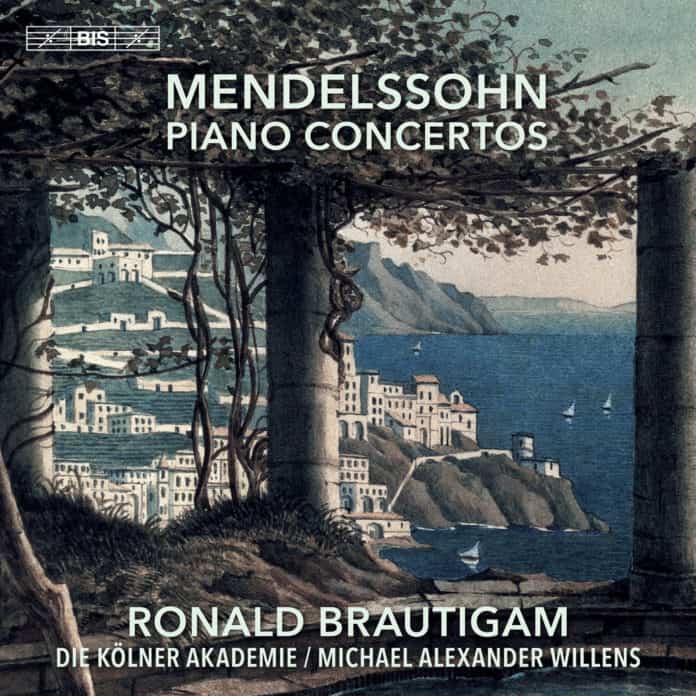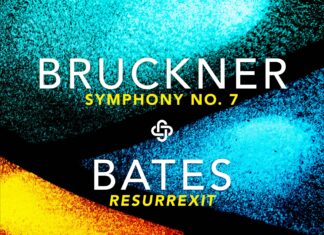Felix Mendelssohn, Piano Concertos
Ronald Brautigam (fortepiano)
Die Kölner Akademie
Michael Alexander Willens (conductor)
BIS Records
These are fleet performances of Mendelssohn’s super-exciting, exuberant piano concertos. Brautigam is renowned for his recordings on the fortepiano, with a first-rate set of the complete Beethoven Sonatas. The interesting thing in this Mendelssohn release is that the pianist has already recorded these concertos for the same label on a modern piano with a chamber orchestra (the Amsterdam Sinfonietta).
Here he performs them on a 2010 copy of a 1830 Pleyel accompanied by the period instruments of the Kölner Akademie under the direction of Michael Alexander Willens. This partnership will be familiar to some: the same forces had recorded a Mozart piano concerto cycle a few years ago (raising some eyebrows but also getting a lot of rave reviews).
Here the results are outstanding. Being a fan of Perahia in this repertoire, as well as Brautigam’s earlier efforts, I can say that the choice for a fortepiano and a period orchestra couldn’t have been better. It is not that one hears these concertos afresh. There’s more than that. Brautigam’s lyrical approach, combined with the lighter tone of the Pleyel, gives the music a whole new texture. As for Willens, he draws a full, multi-layered sound from the Kölner Academie. I emphasize this because in the early days of HIP performances there had been many complaints of scrawny-sounding strings. Not here. There are passages where the dialogue between soloist and orchestra is even more successful with the period instruments: first, they both blend really well creating a uniform sound. Second, the textural detail of the strings gives the slow movements a more intimate feel (listen from 3:50 in the Andante of the first concerto).
Last, I should note that these performances are taken at slightly different tempos compared to Brautigam’s earlier set. While the middle movements are now a bit faster, most of the outer movements are a few seconds slower. I don’t know if this has to do with the instrument but I’d like to believe the pianist has rethought these pieces. Instead of providing us with a similar interpretation, his approach now sounds more mature and well-thought-out and — even though I wasn’t expecting to say this — the faster tempos work great in the inner movements.
The recorded sound is exemplary. Even if you have these concertos played on a modern piano, I would urge you to sample this new release. Brautigam’s quicksilver tone and his choice of instrument fit this repertoire like a glove.
Rating: ***** (5/5)







Really interesting you just reviewed Brautigam, which I agree is excellent. I just ended up reviewing Jan Lisiecki’s recording on modern piano with the Orpheus Chamber first, but will very soon also write about Brautigam.
Hi! I’ve just read your review. I agree that the Lisiecki is very good too! Looking forward to your Brautigam review.
FYI I posted a link to your review on my blog entry. In the end, I actually really like both recordings.